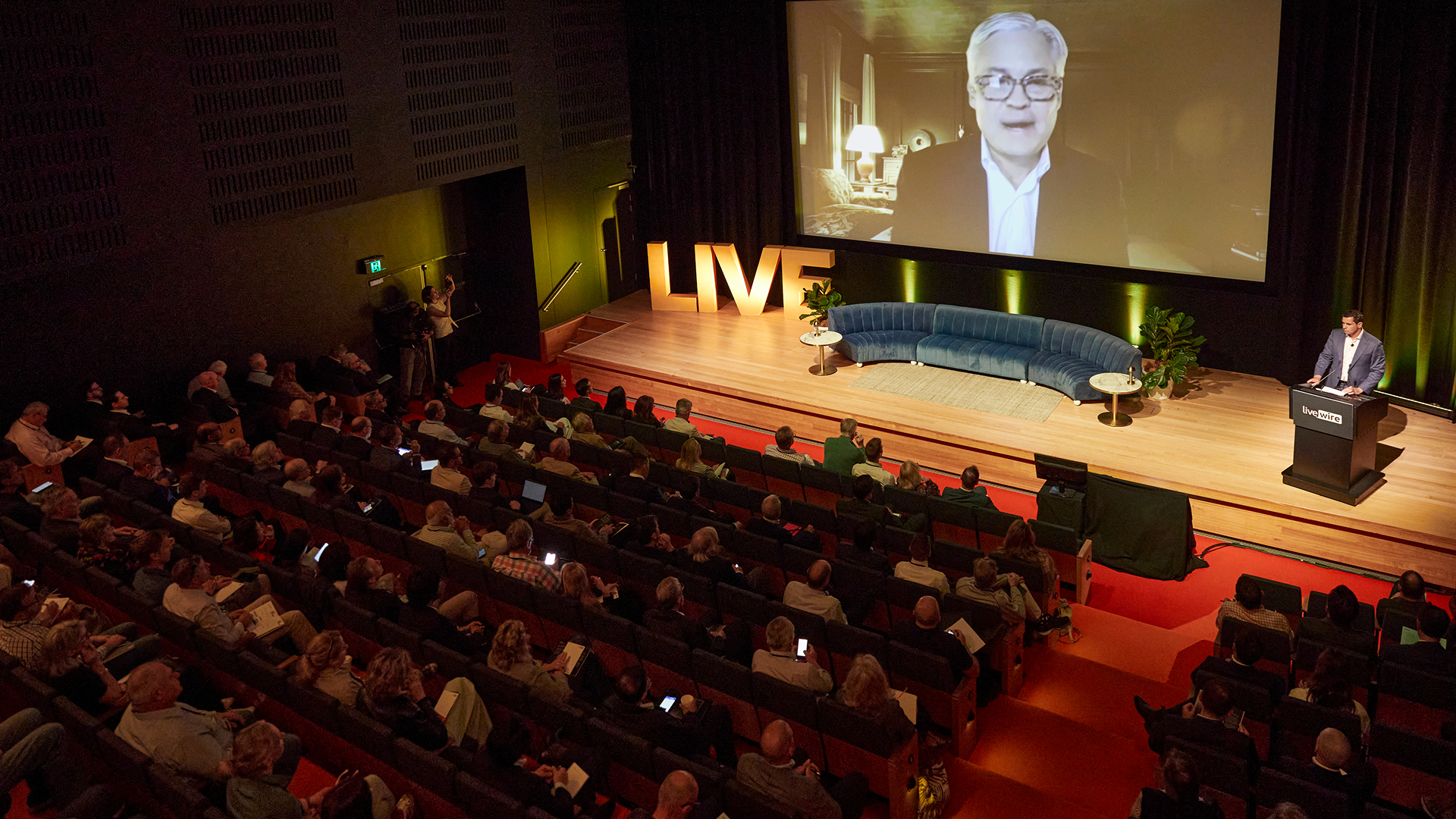Kipp deVeer: why private markets still have room to grow
Private markets have moved from a niche corner of finance to a core part of the global investment landscape. Few firms have played a bigger role in that shift than Ares Management.
At Livewire Live 2025, Ares Co-President Kipp deVeer joined from New York to discuss how the firm built its global platform, where it sees the next phase of growth, and why it’s investing in sport and entertainment.
For Australian investors closely following the rise of private credit, real assets and alternative strategies, his insights offered a grounded view of how a global manager thinks about scale, risk and opportunity.
Building a business for the long haul
When Kipp deVeer joined Ares in 2004, the firm had about 60 people. Today, it has more than 4,000 across 50 offices and manages around US$572 billion in assets. The growth has been steady and built over decades, through focus and execution.
Ares began as a credit specialist in the late 1990s, spinning out from Apollo to focus on lending to the middle market. As U.S. banks consolidated and stepped back from smaller corporate borrowers, Ares filled the gap. That decision helped shape what private credit has become today - an important source of long-term funding for businesses outside the banking system.
“Being an early mover is a great, great advantage,” Kipp said. “We’ve stuck to the same playbook in the U.S., Europe and now in APAC, which really is built around building very large origination teams.”
That playbook relies on local teams who can source and manage deals directly. It also demands a strong risk culture. “You should expect to be invested in those assets for a long period of time,” he said. “You not only need to be able to originate and underwrite them, but you need to be able to manage them well because you’re not always going to get everything right.”
The same approach is now being applied in Australia, where the market is evolving in familiar ways. As banks merge and pull back, smaller borrowers are finding it harder to access capital. For Ares, that’s an opportunity to repeat a proven model.
“The Australian market is showing a really significant opportunity, which is why we’ve stood a team up there and have continued growing,” Kipp said.

The next phase of growth
Ares’ credit business remains its foundation, but the next phase of growth is focused on real assets and secondaries - two areas benefiting from structural shifts in capital markets.
In Asia, Ares has made several acquisitions to build scale, including a credit manager, a private equity manager, and more recently a real assets business focused on Japanese logistics and data centres. These moves strengthen Ares’ ability to invest in infrastructure and real estate at a time when banks are retreating from those sectors.
“We’re finding that the banks globally had gotten very long, both real estate and infrastructure assets,” Kipp said. “They’re probably a little less aggressive in those sectors, which is great timing for us because that pullback actually allows us a really nice opportunity to press into those areas.”
Secondaries are another growth driver. These funds buy existing investor commitments in private market vehicles, giving liquidity to sellers and new access for buyers. As capital distributions have slowed, the demand for secondary transactions has increased.
“We’ve seen 30% growth in AUM in our secondaries business in the last 12 months,” Kipp said.
Ares runs its primary and secondary strategies side by side across credit, private equity, real estate and infrastructure - a structure that provides visibility across the full investment lifecycle.
Kipp said the firm’s focus is always on building lasting platforms, not chasing short-term opportunities. “We’re not building something as a trade,” he said. “We’re building something that we see as an attractive long-term business, where we can build a quality team and sustainable advantages.”
A scarce product in need of innovative capital
One of Ares’ notable moves into the sport, media and entertainment space was its 2020 investment in Rugby Australia.
The idea gained momentum during COVID, when live sport stopped and many teams and leagues faced financial strain. “Maybe it’s the way our brains work, but that said opportunity,” Kipp said.
“There were going to be a lot of people - owners of teams, media companies, owners of stadiums - whose businesses were going to be fundamentally changed by that pandemic.”
Sport, he said, is a “very scarce product” in the entertainment world, but one that has lacked access to flexible capital.
Ares has subsequently built a dedicated team and deployed capital across teams, leagues, media rights and stadiums. Its portfolio includes stakes in Inter Miami, Atlético Madrid, McLaren, and the Miami Dolphins, along with structured investments in Chelsea Football Club and France SailGP.
For Ares, sport fits naturally within its broader investment philosophy: finding undercapitalised assets with durable earnings and providing tailored financing. It’s a long-term play in a market where demand for live entertainment continues to grow.
“This is a very scarce product these days in terms of entertainment. It’s also an industry that had lacked creative financing.”
1 topic


